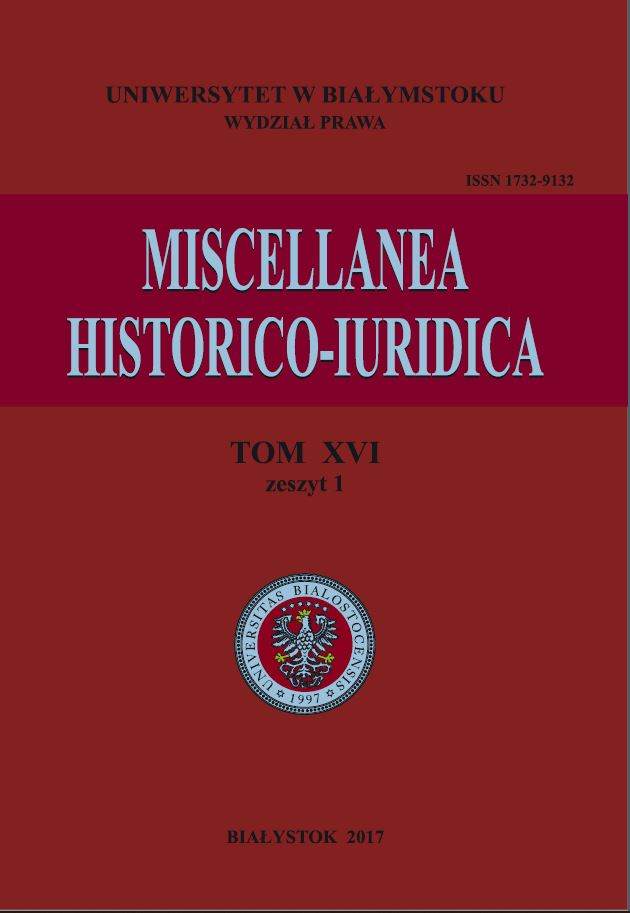Soviet Family Law: Genesis and Evolution from the Perspective of the Latvian SSR Experience
Soviet Family Law: Genesis and Evolution from the Perspective of the Latvian SSR Experience
Author(s): Sanita OsipovaSubject(s): Law, Constitution, Jurisprudence, History of Law, Civil Law
Published by: Wydawnictwo Uniwersytetu w Białymstoku
Keywords: Soviet marriage and family law; Marxism-Leninism; civil marriage; equality of spouses; Sowieckie małżeństwo i prawo rodzinne; marksizm-leninizm; małżeństwo cywilne; równość małżonków
Summary/Abstract: The Soviet law, which was created at the beginning of the 20th century in Soviet Russia, had evolved on the basis of the legal tradition of Continental Europe; it was a legal system based on the Marxist law theory as understood in Soviet Russia and later in the USSR and the countries that came under its influence, and it differed considerably from the idea of law in Roman and Germanic legal circles. Marxism-Leninism advocated actual equality in society, including gender equality, which determined Soviet state policy in the sphere of marriage and family law. Moreover, Marxism-Leninism turned against private property, which necessitated the separation of family law from civil law into a new individual branch – marriage and family law. In the spring of 1940 the Republic of Latvia was annexed to the Soviet Union. In the territories occupied by the USSR in 1940 – Latvia, Estonia, Lithuania – the previously existing national systems of law were replaced by Soviet law, which was grounded in Marxist-Leninist ideology. As a result of the Soviet marriage and family regulations being put in place, the following was established in the territory of Latvia: civil marriage as the only valid form of marriage, equality of spouses, and the equality in the rights of all children regardless of whether they were born in or outside of marriage. These, undoubtedly, were advanced and positive innovations. However, at the same time, a Soviet family was one that lost its private nature, as it was obliged to fulfil tasks of national importance. This, in turn, meant interference by the state and by society in family life; childless families had to pay a childlessness tax, so that the State could use those funds to support orphans, lone mothers and large families with many children.
Journal: Miscellanea Historico-Iuridica
- Issue Year: 16/2017
- Issue No: 1
- Page Range: 67-91
- Page Count: 25
- Language: English

